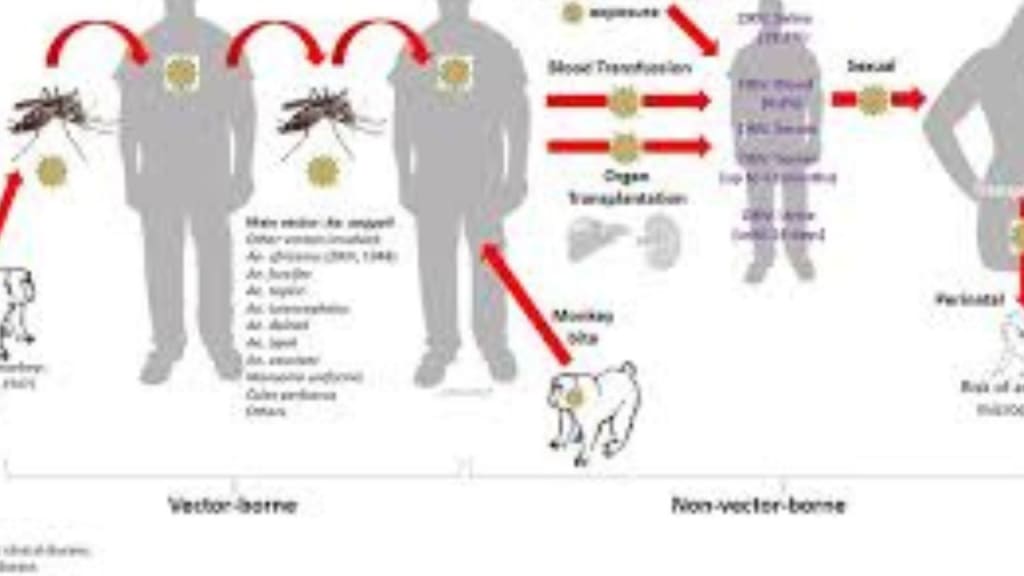Zika Virus: One Suspected Death in Karnataka, Precautions to Keep the Disease at Bay
"Understanding the Risks and Safety Measures for Zika Virus Prevention"

As the monsoons bring relief from the scorching heat, they also usher in a season of water-borne diseases, including the rise of the Zika virus. The virus has been reported in various parts of the country, prompting the Centre to alert states and urge them to maintain vigilance. Public awareness and caution are crucial in managing the spread of the virus and ensuring safety.
What is the Zika Virus?
The Zika virus is primarily transmitted through the bite of an infected Aedes species mosquito, the same mosquitoes that spread dengue and chikungunya. Symptoms typically include fever, rash, joint pain, and red eyes. While the illness is usually mild, it can pose serious risks for pregnant women as it can cause congenital disabilities in newborns.
Recent Developments and Concerns
First Suspected Death in Karnataka
Recently, a 74-year-old man in Karnataka’s Shivamogga district died after testing positive for the Zika virus. The cause of death has not been conclusively linked to the virus due to the patient’s existing comorbidities. According to media reports, the patient was admitted to a private hospital on June 18, and his blood and urine samples were subsequently referred to McGann Hospital. The National Institute of Virology (NIV) in Bengaluru confirmed the infection on June 21, after which he remained under treatment until his death.
Rise in Cases Among Pregnant Women
The resurgence of the Zika virus has caused concern in Pune, where six new cases have been reported, including two pregnant women. Health officials have heightened monitoring, given the potential complications associated with Zika infection during pregnancy. Among the affected are a 28-year-old woman from Erandwane, who tested positive on June 28, and a 12-week pregnant woman confirmed infected on July 1. Fortunately, both women are currently asymptomatic.
Tips to Follow if Infected by Zika Virus
Seek Medical Attention Promptly: Do not panic but seek medical help immediately. Delaying treatment can lead to complications.
Avoid Self-Medication: Follow medical advice and take the prescribed measures to stay safe and protected.
Stay Indoors and Rest: If you are infected, remain indoors, rest as much as possible, and stay hydrated by drinking plenty of fluids.
Pregnant Women: Avoid travel, especially to areas where the virus is prevalent. Pregnant women in affected areas should be closely monitored.
Dos and Don’ts for Preventing Zika Virus
Dos:
Use Insect Repellents: Apply mosquito repellents, especially when outdoors.
Wear Protective Clothing: Wear full-sleeved clothes to minimize skin exposure.
Maintain Cleanliness: Ensure your surroundings are clean to prevent mosquito breeding.
Use Screens and Nets: Keep doors and windows closed or use mosquito nets to avoid mosquito bites.
Don’ts:
Avoid Stagnant Water: Do not leave water standing in pots, buckets, or any open containers.
Limit Outdoor Activities: Especially during dawn and dusk when mosquitoes are most active.
Avoid Crowded Places: Especially if you have a weak immune system or are pregnant.
Do Not Self-Medicate: Always seek professional medical advice.
Precautions to Undertake
Close Doors and Windows: In mosquito-prone areas, ensure doors and windows are properly closed.
Consume Fresh Food: Avoid outside food and eat fresh, homemade meals.
Ventilation: Ensure your home and indoor spaces are well-ventilated.
Hygiene: Wash your hands frequently and avoid touching your face after coming from outside.
Importance of Hygiene and Cleanliness
Maintaining basic hygiene and cleanliness is essential in preventing the spread of the Zika virus. Regularly clean your home, especially areas where water can stagnate, and ensure that all containers that can hold water are emptied and cleaned regularly. This helps in eliminating potential mosquito breeding sites.
Government and Public Health Response
The government has instructed health facilities in affected areas to screen pregnant women for Zika virus and monitor the growth of fetuses of infected expecting mothers. These steps are crucial in preventing potential complications arising from Zika infections during pregnancy.
Conclusion
The Zika virus, though a cause for concern, can be managed effectively with timely medical intervention and preventive measures. Public awareness and adherence to safety guidelines are critical in controlling the spread of the virus. We can protect ourselves and our loved ones from this disease by taking the necessary precautions and maintaining cleanliness and hygiene.
Remember, the only way to prevent infection from the Zika virus is to reduce the risk of being bitten by a mosquito. Stay informed, stay safe, and take proactive steps to keep the Zika virus at bay.
If you suspect you or someone you know may be infected with the Zika virus, seek medical attention immediately and follow the recommended guidelines to ensure safety and health.
About the Creator
Enjoyed the story? Support the Creator.
Subscribe for free to receive all their stories in your feed. You could also pledge your support or give them a one-off tip, letting them know you appreciate their work.





Comments
There are no comments for this story
Be the first to respond and start the conversation.